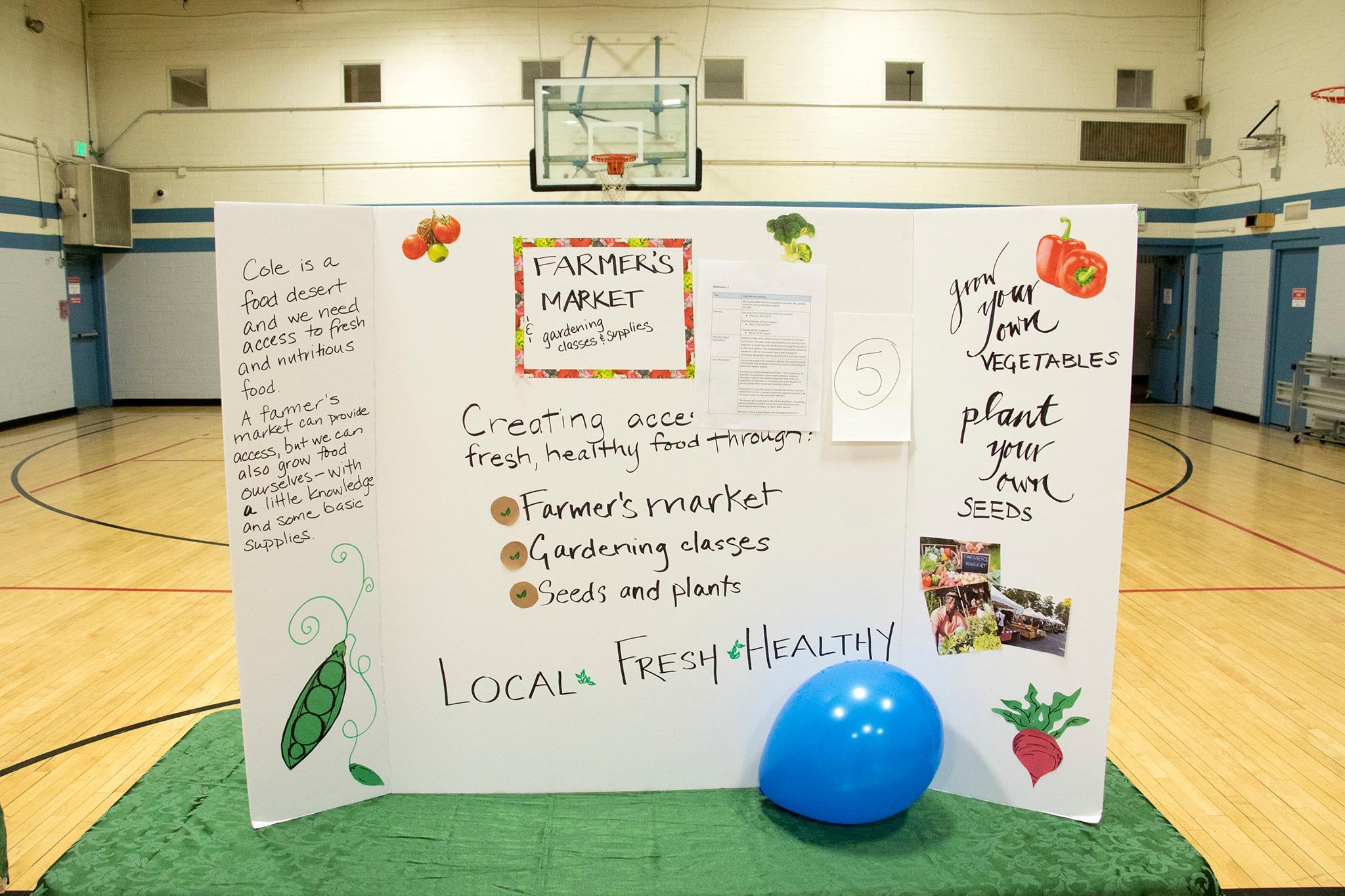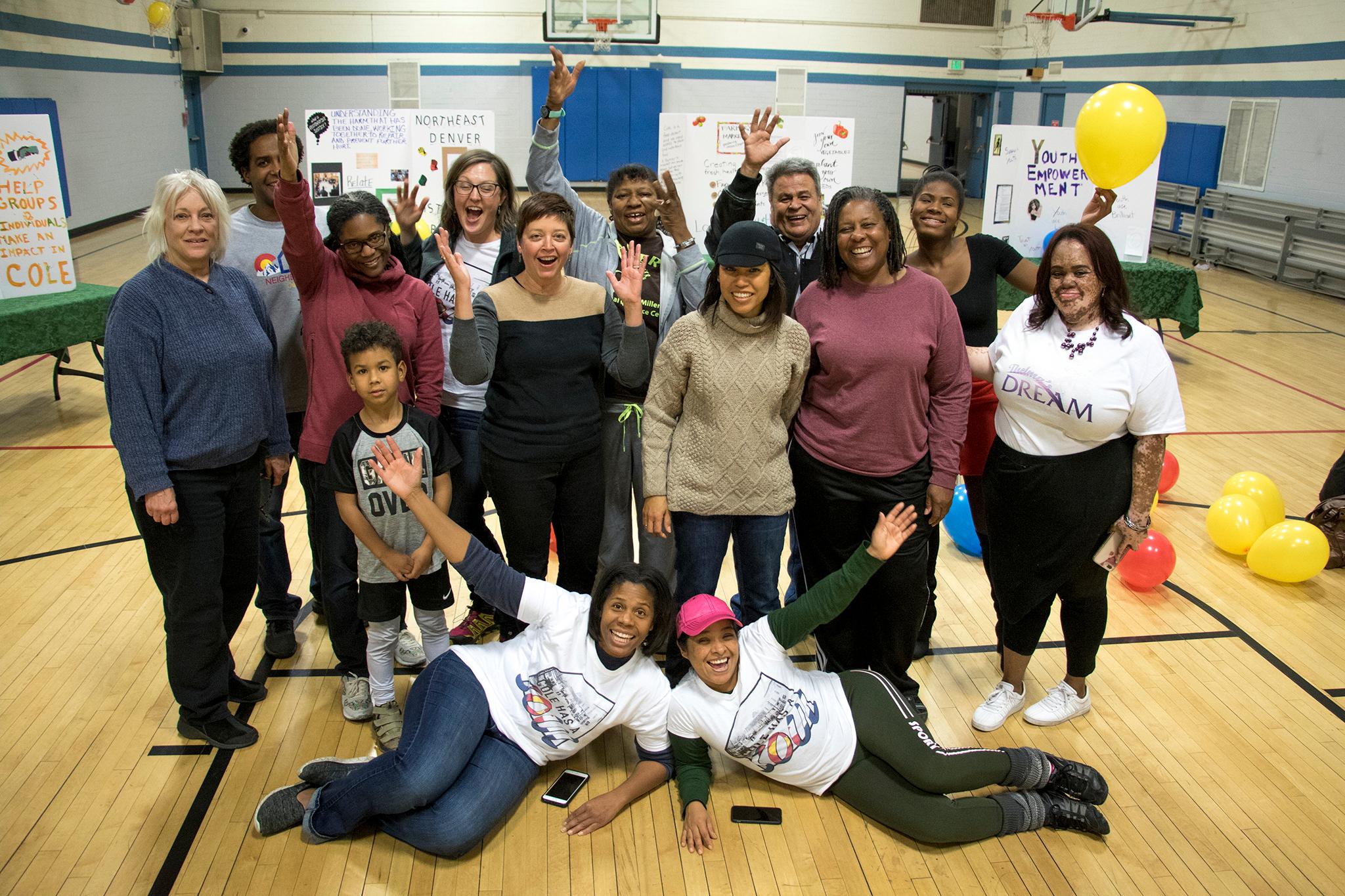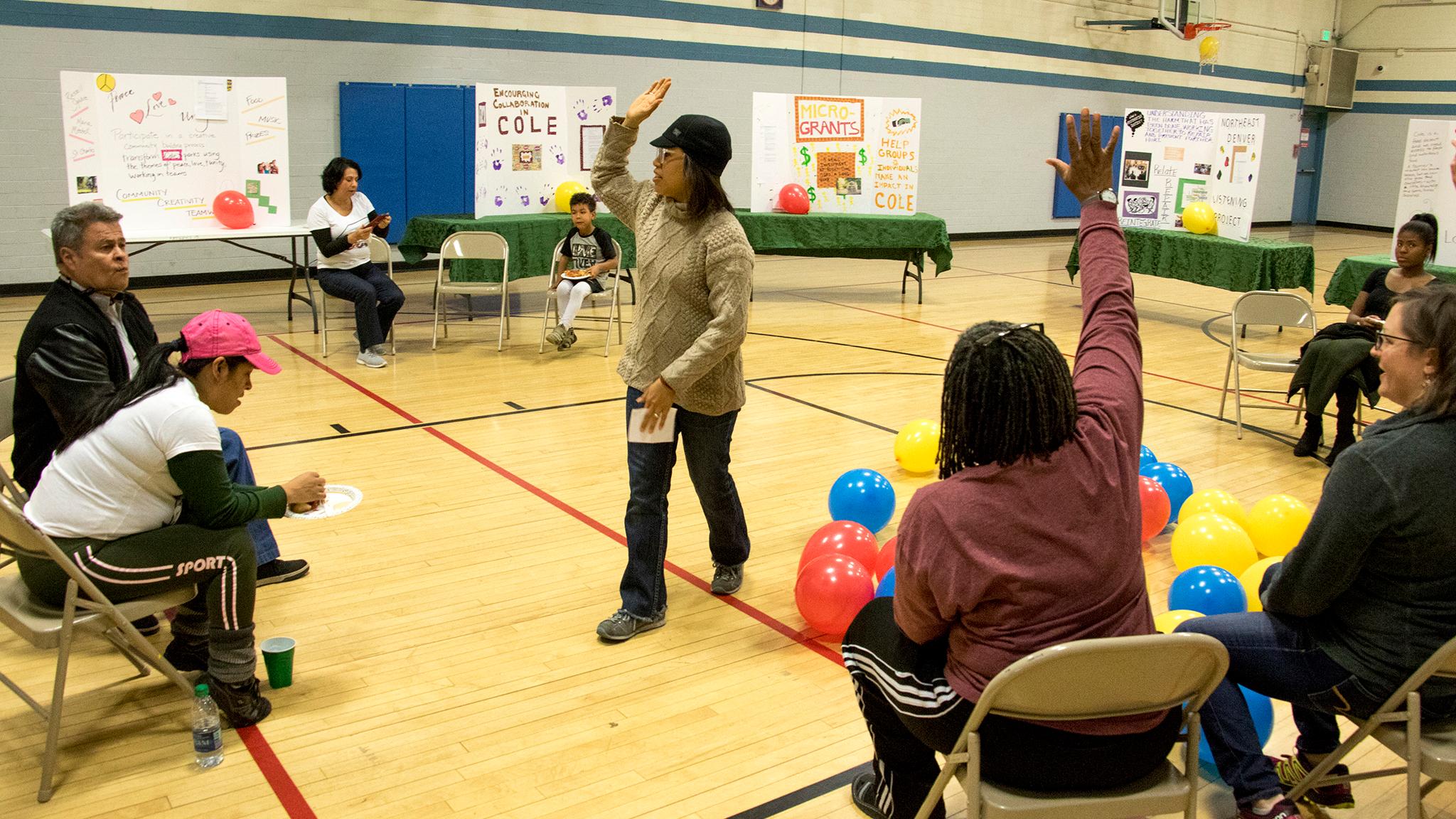You might remember this summer we reported on an art project called "This Machine Has a Soul" that "civic health club" Warm Cookies of the Revolution put on in Elyria Swansea. It involved a litany of Hot Wheels cars and a painted garage that felt kind of like a Meow Wolf exhibit.
As an exploration of "participatory budgeting," a process that allows communities to spend money exactly how they want, that project was a little abstract. But, this week, part of their grant funding was committed to use in a very real way. On Saturday, Cole neighborhood residents wrapped up voting and selected three projects, proposed by neighbors, that would split $30,000.
"Cole Has a Soul" is one of two citizen groups that emerged from Warm Cookies' project to try participatory budgeting in earnest. The other is also receiving $30,000 for a yet-determined project on the Auraria campus.
Cher Chrichlow, a member of Cole group's steering committee, said more than 200 people submitted ideas as to how their funds would be spent. The committee then narrowed these ideas down into categories and then into 8 choices that were brought before residents to weigh in on. The options, which went out for a vote before Thanksgiving, ranged from micro-grants for entrepreneurs to an electronic billboard to a "restorative gentrification listening project."
In the end, three projects were selected to receive $10,000 each: one would bring a regular farmer's market to the neighborhood, one would fund programs to enrich local youth and the last would create a regular pop-up outdoor movie night. The money will now go to existing community groups that will be responsible for executing each project.

After weeks of soliciting votes, Chrichlow beamed as she announced the winners to a small group who gathered this weekend at the St. Charles Recreation Center.
It represented a triumph, she said: "They wanted things for the community," and now those things will become a reality.
She told Denverite that, in a neighborhood struggling with growth and gentrification, "participatory budgeting restores a little bit of power back to the people. That's really important."
Sitting in on the meeting was Vincent Russell, a graduate student at CU Boulder who has worked on participatory budgeting - which he calls "PB" - in other states. He's studying PB on an academic level, and has been present to evaluate Warm Cookies' crack at it.
"PB, in general, tends to get participation from historically marginalized groups, and I think we're seeing that in the Cole neighborhood which is, as folks know, a neighborhood that's experienced certain systemic issues," he said. "The fact that residents are coming together and deciding what they want to do with money to benefit their community says a lot about the power of PB."
For a process that had no government backing, he continued, 200 participants is "pretty solid." He hopes Cole could be a model that the city can use to more formally use PB in the future.
In 2017, City Councilwoman Robin Kniech proposed a participatory budgeting pilot for the city, but Denver has yet to really use a process like that.
Russell said it takes a lot of advocacy to get a government to embrace the process, mainly because it's not easy to engage residents that way.
"On the front end, when you're just looking at it, it looks like a lot of work. And to be fair, it is. But I think that the benefits for people end up outweighing the costs," he said. "To be fair to Denver: they actually have some pretty good practices in place around getting resident input. What sometimes holds people up is actually directly empowering residents to decide where the money goes in the end."

Tash Mitchell, an organizer who grew up nearby when the surrounding neighborhoods were known simply as the "east side," said she felt that struggle when only a few people showed up at the gym on Saturday. She was a little disappointed that turnout was sparse, but training residents to participate is part of the process, just as they need to train city leaders to embrace it.
"It takes work. We're trying to build a culture of collective power," she said. "I wish this for the east side. But one neighborhood at a time. Or one block, however we gotta approach it."












